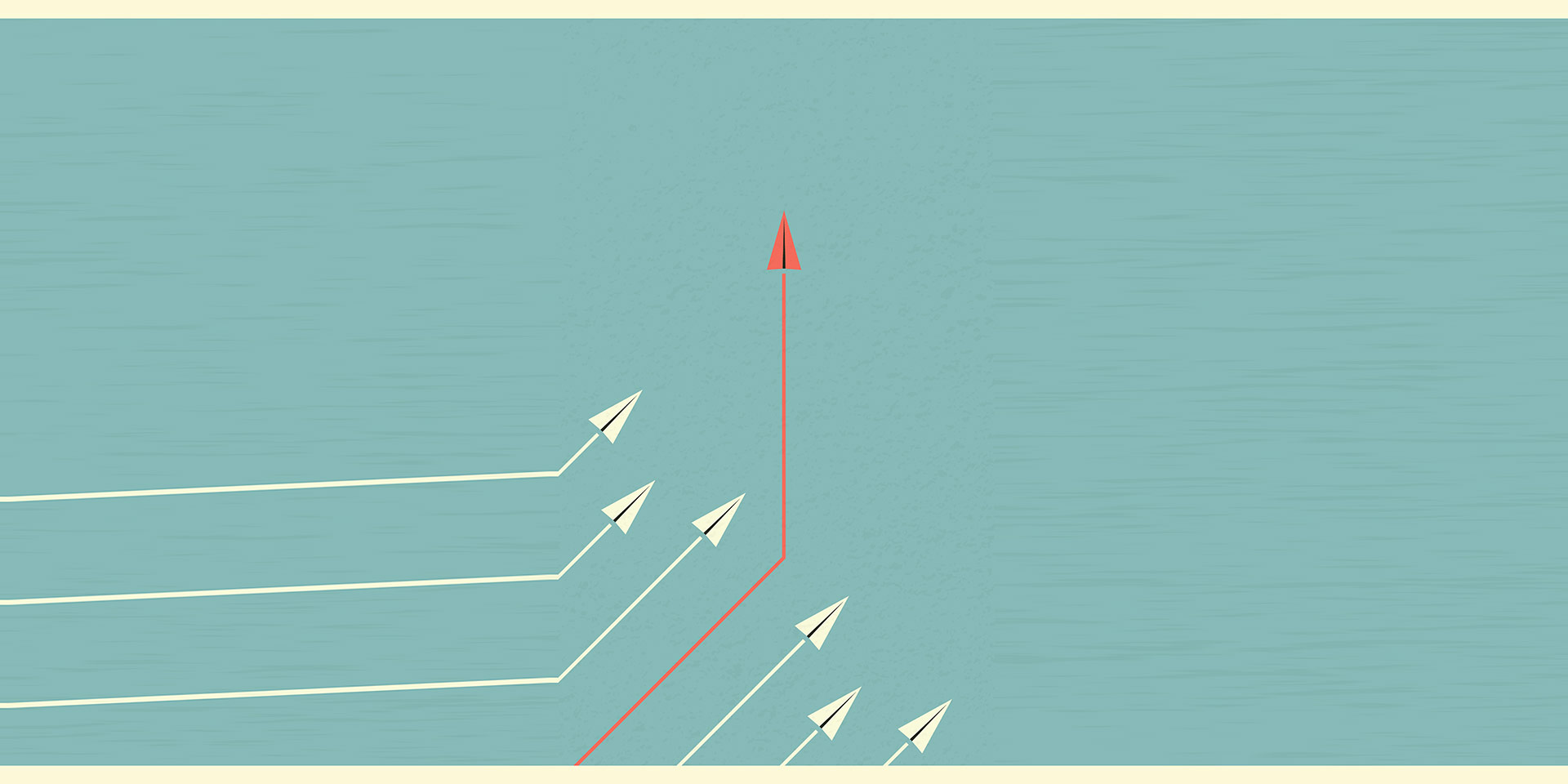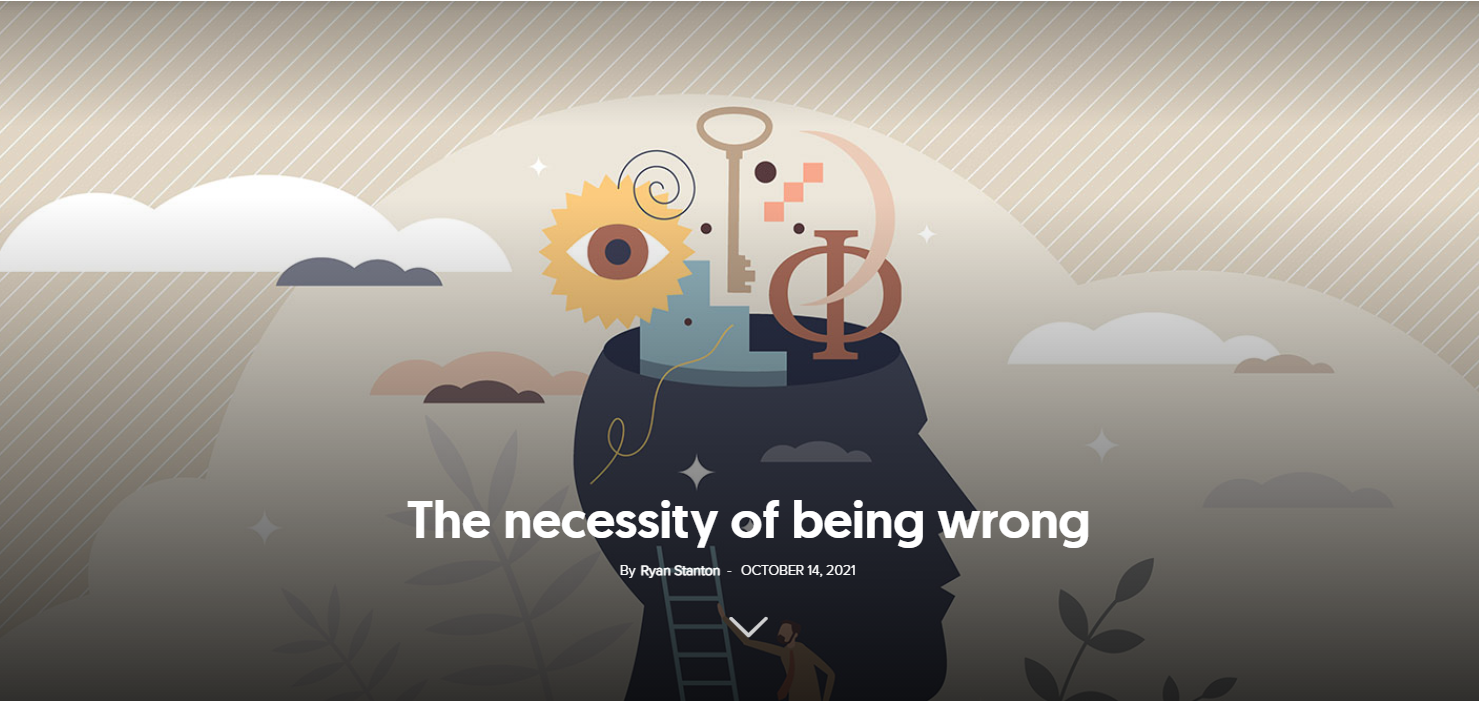“Fear is a reaction. Courage is a decision.” (Winston Churchill)
As I read the testimonies of people who, in their lives of faith, have faced situations that have tested their physical and spiritual endurance, I set out to understand how they managed to remain courageous. I was interested in analysing the circumstances and ways in which, under the influence of fear, threats, torture, humiliation, and sometimes even despair, they had attitudes and reactions that can be summed up by this virtue: courage. I will try to summarise the conclusions I have reached in a “list” of conditions favourable to courageous manifestations. I intend to develop this list over the next three articles and invite readers interested in the subject to reflect on it and contribute to its completion by writing to us at Signs of the Times.
What is courage?
“Courage is grace under pressure,” said Ernest Hemingway, with an aesthetically sublimated trace of his puritanical upbringing, which he had renounced as a teenager. The Latins said courage was a virtue that “grows in adversity.”[1] The Greek philosopher Plato described it in contrast to cowardice, fear, and other forms of human expression, especially in conditions of combat, threat to life, military honour, and so on.[2]
One thing is certain: courage does not presuppose the absence of fear; it coexists with it and overcomes it. British Prime Minister Winston Churchill, who demonstrated and instilled courage in his entire nation during the Second World War against the Nazi threat, also emphasised this point; his famous radio speech culminated in the declaration: “We shall NEVER surrender!”
Nevertheless, what we can conclude from the various cultural references to this subject is that we cannot learn it in a didactic way and we cannot be taught a lesson about courage in the way that school subjects are taught. It requires a self-awareness that can only be gained in moments of crisis, when we have to react in a certain way, often as quickly as possible.
Moreover, courage is not a constant in one’s behaviour, but can sometimes be manifested and sometimes not. In ordinary circumstances, when there is no threat to life, liberty, health, personal integrity, etc., we cannot know whether we are capable of courage or not.
Regardless of what the Latins say, courage is not like a manifest potentiality that automatically translates into action. We can understand the importance of the military rhetoric full of high values, creeds, ideals, and symbols to which the leaders of armies, politicians and patriots of all origins appeal at certain historical moments; we can understand the mobilising speech of the instructors of fighters of all kinds to make them brave in battle; but all this does not guarantee the display of courage or instilling courage in those who are targeted.
Furthermore, courage cannot be measured or monitored, nor can it be exercised like a muscle, because the conditions that can trigger it are never identical; they produce very different thoughts and emotional responses, with unique nuances that give rise to unique attitudes and actions.
What remains for us to do is to collect the precious impressions and judgments that brave people have testified to, extracted from their extreme experiences; to reflect on them and keep them as a dowry of good, wise counsel that may one day prove to be of great help, adapted to our circumstances.
1. “Thy will be done!”
The Christic resonance of this fundamental choice (not our will, but His will be done) enlightens us and shows us the way to courageous self-denial. It is the first condition for courage, a privileged one, because all the others we will mention are linked to it. Specifically, it requires that the person or persons who find themselves in a great impasse know that the way they have chosen to react is in accordance with the divine will. If they understand God’s will and choose to respect it, whatever the difficulties, they will acquire the courage that every child has when it knows that it is under the care and approval of its parents. Conversely, when we know that our choice is not God’s will, we are dealing with blind temerity.
The biblical episode that illustrates this condition for courage and the consequences of not respecting it is found in the Book of Jonah. Despite clear instructions from God to go to the city of Nineveh and warn its inhabitants to repent of their sins, lest they be destroyed by divine wrath, Jonah chooses the opposite direction; he boards a ship sailing away from Nineveh, refusing his mission as a man of God sent to save his people. The consequence of his refusal is that he ends up near death, swallowed by a great fish after being thrown overboard by his fellow passengers (Jonah 1-2).
A masterful illustration of the blessings that come to those who choose to abide by the divine will, especially when it is clearly expressed to them, is found in the crucial moment of the Exodus, when the people of Israel find themselves at the borders of the Promised Land. The twelve spies are sent to explore and assess it, but the result is disappointing to God, who promised them that He would be the one to fight the enemies and that their only task would be to set out valiantly to take possession of the land. Only two spies, Joshua and Caleb, trust in the promise of victory and are determined to go into battle with courage; the others show cowardice born of ignorance of God’s power and love. As punishment, God sent them back to the wilderness, where they would wander for forty years, so that the whole generation of cowardly people with a slave mentality would be changed; only the families of Joshua and Caleb, who remained faithful to God, were saved. The next day, however, a group of the cowardly suddenly change their lamentations into a warlike zeal, driven by a mad courage; and although Moses warns them that God is not with them, they go to fight the inhabitants of the land and are annihilated (Numbers 14:34-43).
In our time, an illustrative case of the courage to do God’s will in the face of threats is that of Nicolae Steinhardt, a Jewish intellectual with a frail constitution, and an elderly father in his care, who, on 31 December 1959, was investigated by the secret service of the Communist regime; he was offered the chance to become an informer and denouncer of his friends in order to avoid political imprisonment, in what is known as the “Noica-Pillat dossier.” Not only did he refuse to denounce his comrades or to lie to save himself, but he also resisted persecution, threats, and later beatings and, at the insistence of his father, decided to turn himself in.
Here is what he wrote about these events in what he called his “diary of happiness,” the diary of the imprisonment that brought him the happiness of becoming a Christian and meeting other Christians oppressed for their faith: “Not only did I not accuse anyone of anything, not only did I not admit anything, but I signed [the statement] only after all the little corrections I had persistently asked for had been made… I can’t believe I did it. I played my part, it seems, right to the end. For the first time I discover myself to be stubborn… But I’m still afraid… He tells me again, coldly and seriously: Get your head in the game. The tone is, how shall I put it, fatidic. It was always about my father… I’ve got three days to talk to him. Why did you bring the suitcase? Well, in view of the arrest, it’s a provocative gesture…”
2. “In the name of God…”
The Apostle Paul, in his letter to the Galatians, quotes an ancient saying which, in a similar form, can also be found in the Book of Job: “God cannot be mocked” (Galatians 6:7). Nor can He be deceived by people, and so He condemns those who try to deceive Him in front of their fellow human beings, using them as witnesses, as spectators of their actions, or even as supporters (Job 13:9-10). We can see that God intervenes visibly, as in a public declaration or warning, through His faithful people to punish the scoffers or deceivers. And the circumstances in which these zealous believers act fulfil another biblical promise: that He will act through “the weak things of the world”; He acts in this way to reveal the divine origin of the power that is suddenly and unexpectedly manifested in the weak, but also to shatter the illusion of the power of the “strong” (1 Corinthians 1:27).
Of course, those who allow themselves to be guided by God fulfil the first sine qua non of courage: they know the divine will and are determined to obey it, regardless of the consequences resulting from the actions of people. Here we find the deeper meaning of another reflection of Paul’s: “When I am weak, then I am strong” (2 Corinthians 12:10).
This is the case of young David, the shepherd, who could not bear to hear the accusations that the giant Goliath, the Philistine enemy, made against the God of Israel and His army in order to provoke them into battle. Goliath’s advantage and power lay in his unusual stature of more than ten feet, and the provocation was mainly directed at King Saul, who was said to be “a head taller than anyone else” (1 Samuel 9:2); now this people, who had wanted to be like the world, that is, to have a king like all the other peoples, was locked in an imminent battle doomed to failure, for no one could match Goliath’s power.
But David thinks spiritually, and with a courage that only his love for God can inspire in him, he declares to the giant that he will fight him and defeat him “in the name of the Lord Almighty, the God of the armies of Israel,” so that all the earth may know “that there is a God in Israel” and that “the battle is the Lord’s” (1 Samuel 17:45-47). He becomes truly “strong” when he takes off Saul’s uncomfortable armour and goes into battle armed only with a sling. And everything happened just as he had said it would, because the public insult to God could not go unpunished. This is the divinity’s way of preventing other eyewitnesses from being deceived about the divine identity and omnipotence.
In another Old Testament case, a powerful man of the time, the king of Assyria, tries to deceive the Jews into submission by claiming to be sent by their God Himself. Then, through the messenger Rabshakeh, he also insults the Godhead, claiming that just as the other gods of the conquered nations had not saved them, so the God of this people would not (2 Kings 18:35). Furthermore, the Jews are warned not to follow the faithfulness of their king: “Do not let Hezekiah persuade you to trust in the Lord…” (2 Kings 18:30). This seems to be a glaring case of rebellion against the Godhead, which demands exemplary punishment among all the nations of the time. So Hezekiah lays the offending message before the altar in humble and unwavering prayer, asking for deliverance “so that all the kingdoms of the earth may know that you alone, Lord, are God.” Hezekiah uttered this prayer despite being overwhelmed by the enemy’s armed force, and deliverance came: the Assyrian army was destroyed during the night by the superhuman power of an angel.
3. “One with God is a majority!”
This was Martin Luther’s courageous exclamation when he found himself in an absolute minority before his accusers among the Catholic clergy. Although this inspired statement was made in reference to himself, it can be echoed by any child of God when in a minority and under coordinated attack from enemies. Biblical examples abound:
There is the case of the three young Jews in Babylonian captivity, Shadrach, Meshach, and Abednego, confronted by a huge gathering of worshippers of King Nebuchadnezzar’s idol and then by the burning furnace. Their faith and courage were unwavering, even in the hypothetical case that God would not save them from death (Daniel 3).
The prophet Elisha is another minority case; when his disciple informs him that they are surrounded by the enemy army, he prays that God will also give the disciple spiritual sight to see that the multitude of angels surrounding the army unseen was far greater (2 Kings 6:17).
The prophet Daniel is another case of an absolute minority, opposed by all the courtiers of the king of the Medes and Persians. Yet even when he was thrown into the lions’ den to die, his God protected him (Daniel 6).
In addition to the biblical heroes, we also meet courageous people in our time who defended their faith, even in a minority, choosing to lose their privileges and to withstand attacks or defamation, because in their conscience they had chosen to remain faithful to the divine message to mankind.
This was the case of the priests (later defrocked) Dumitru Cornilescu and Tudor (Teodor) Popescu, men who, in the first half of the last century, out of Christian piety and self-sacrifice, studied the biblical text in depth and chose to share it with their fellow human beings, unchanged doctrinally and unchanged according to customs and “human rules” (Mark 7:7-9)—the first, through the first translation of the Bible into modern Romanian and the widespread proclamation of its truths; the second, through an evangelical work that revived the faith of many, in the movement that began in the Bucharest church “Cuibul cu barză” (The Stork’s Nest Church) and was strengthened by the evangelical movement in Romania[3]. Here is what Alexandru Măianu notes in his work The Life and Work of Dumitru Cornilescu: “The public and especially the underground struggle became more and more violent. The aim was to remove the priest Tudor Popescu from the Orthodox Church. At the same time, Dumitru Cornilescu, although he had no official position that could be judged, had too incisive a mind to stand against those ecclesiastical faces that defended Orthodoxy. And his incisiveness, his strong convictions, and the influence he had in all the religious and lay circles of the country made him one of the main targets of their blows.”[4]
All these cases and conditions are interwoven with miraculous destinies and events that should give courage to all who learn of them. In future articles I will expand on this list. The first three conditions listed correlate with others, but we will find that they all start from the premise of knowing and applying God’s will above one’s own. We will learn, not only from the Bible but also from testimonies and from the lives of great Christians, that they give courage and strength to acts of bravery. And these acts, which are far beyond the capacity of the authors to evaluate or anticipate, confirm the miraculous works of God in the lives of those who know the divine will and are determined to respect it; they only learn to put the mustard seed of faith at His disposal, so that God may create around them a miraculous garden.




















